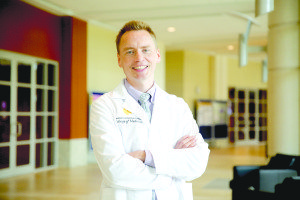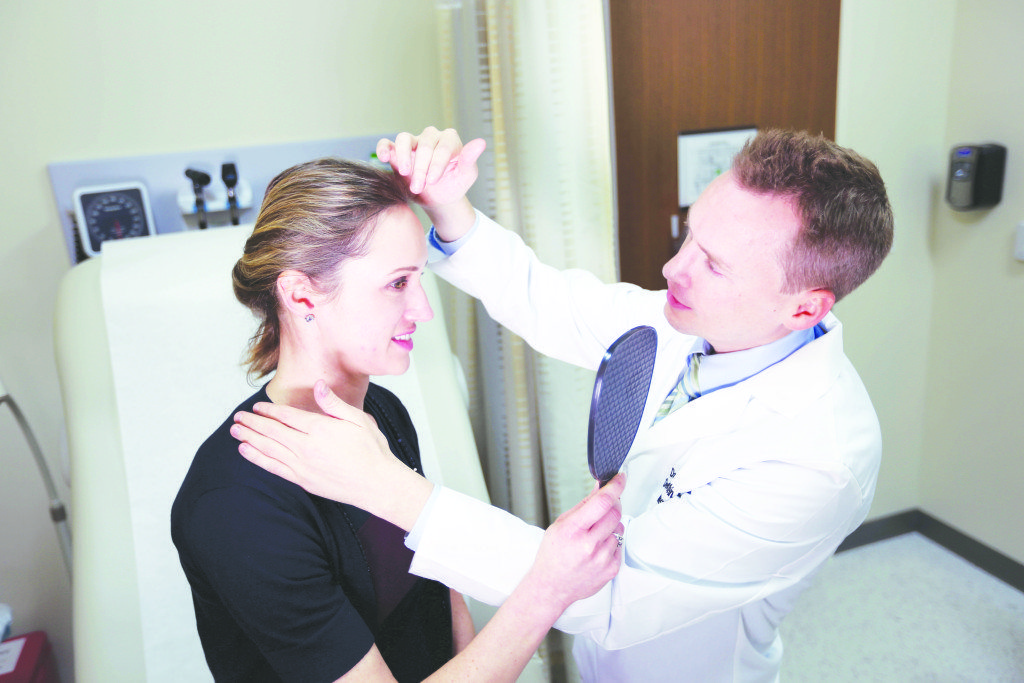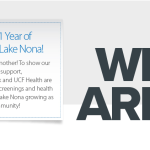
New developments in skin care keep us fresh-faced and beautiful
Science has taught us a few key things about keeping our skin beautiful: Don’t smoke, don’t tan, drink plenty of water. But what if we blew it in our 20s? Are you doomed to pay for it for the rest of your life? The answer, according to UCF Health dermatologist Dr. David Weinstein, is no. He says along with the knowledge medicine has gained about how to keep skin healthy and young, it has also made strides in skin care products and treatments that can help restore skin’s youthful appearance. The three key tricks to reversing skin aging are: speed up cell turnover, stimulate collagen and add volume.
Speed up cell turnover
As we age, cell turnover decreases dramatically. That means you don’t shed the top layers of dead skin quickly to show off fresh layers. But you can give your skin a boost by using a retinoid cream (a form of vitamin A). With the increased cell turnover, fine lines and sun spots can be diminished.
There are many different forms of retinoid available, many without a prescription. It’s good to start with an over-the-counter variety, and if you don’t see improvement in six to eight weeks, see a dermatologist for a prescription-strength retinoid. “This cream is a workhorse in fighting the signs of aging. I recommend to start using a retinoid in your mid- to late-20s for long-term benefits” says Dr. Weinstein, who is a faculty member at the UCF College of Medicine in addition to seeing patients at UCF Health.

Stimulate collagen
Collagen is the most abundant protein in our body. It’s in your bones, muscles, tendons and your skin. You can think of it as the glue that holds your body together. It’s what gives our skin its strength and elasticity. In fact, your skin’s deeper layer, the dermis, is made up of about 80 percent collagen. With age, these fibers break down, wrinkles develop and the skin becomes looser. Skin might appear to sag or be loose, especially around the eye area and in the nose folds.
First, protect the collagen you have by using a good quality sunscreen every day, Dr. Weinstein advises. Not only does sunscreen protect against harmful UVA and UVB rays, but new research shows it also protects skin from free radicals, which can break down collagen. To replenish what’s already been lost, a copper peptide cream may help to stimulate collagen production. There are many brands, including Neova® and Neutrogena®.
If over-the-counter products don’t give you the results you desire, there are other treatments a dermatologist can provide to help “erase” wrinkles. Botulinum toxins, like Botox®, work by paralyzing the muscle contractions that cause “wrinkles” or folds in our skin. As the muscle relaxes, the wrinkle becomes less apparent. Results will last about three to four months and treatments usually cost around $300-$400.
Add volume
Another side effect of aging is that our skin loses its volume. Usually this is most visible around the jawline and in the cheek bone areas. Dermal fillers, such as Juvederm®, Restylane®, and Radiesse®, can help restore volume and fill deep creases. Fillers must be injected by a physician and last six to 18 months depending upon the filler. Fillers are a great solution to take years off your face, but they do come with a cost – about $600 to $900 per syringe, depending upon the filler.
If you are looking for a less expensive solution, creams with hyaluronic acid will help temporarily plump up the skin. This is because these creams draw in moisture to create a plumping effect. There are many over the counter varieties available, including CeraVe® and Neutrogena®. These won’t penetrate as deeply as an injection but will give some “plumping” effect.
A word of caution. As with all cosmetic procedures, even these non-invasive approaches are not without risk. If you are considering advanced skin care techniques, you should be aware of these risks, but not scared. These products have a very good safety record when performed by a medically-trained professional. The biggest factor to consider is who is doing the injection. Seek out an experienced dermatologist or cosmetic surgeon who is board certified.
UCF Health is the College of Medicine’s physician practice, offering primary and specialty care to the community. Its newest office is located in Lake Nona at the corner of Narcoossee Road and Tavistock Lakes Boulevard. Most major insurance plans are accepted. Visit UCFHealth.com for more information, or call (407) 266-DOCS to schedule an appointment.



